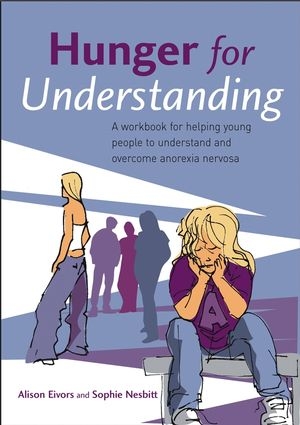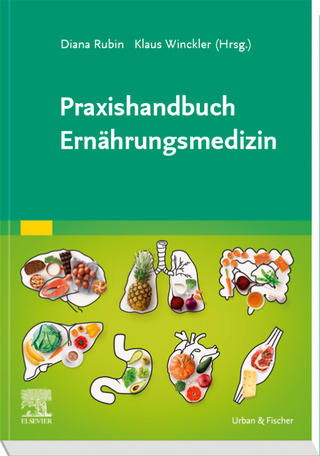
Hunger for Understanding
John Wiley & Sons Inc (Verlag)
978-0-470-02128-6 (ISBN)
Research suggests that anorexia nervosa and other eating disorders, whilst not prevalent in the population, have the highest mortality rate of all psychological problems. The development of effective treatment programs is therefore an important priority for health care professionals. This flexible book has been designed for use by therapists as part of a programme when working with young people with eating disorders. The aim is to help young people understand more about their own experience, and alongside guidance ofr therapists it includes a complete workbook for use by the young persons themselves. This presents tasks ranging from reflective thinking to drawing to promote engagement with difficulties as a first step to overcoming them.
Alison Eivors qualified as a clinical psychologist in 1999. During her training she developed an interest in eating disorders and completed her doctorate in this area. She conducted a qualitative study that investigated reasons for dropout from services for anorexia nervosa. This gave her the opportunity to interview women about the meaning of their eating difficulties and gave her an invaluable insight into the very functional role anorexia can play in people’s lives and the enormous battle they face to overcome the disorder. Alison currently works as Principal Clinical Psychologist at a specialist adolescent mental health service in Leicester. This post has provided her with the opportunity to work clinically with young women suffering from eating disorders. For the past two years Alison has been part of a multidisciplinary team to review her local service for young people with eating disorders. The review involved researching the evidence base, interviewing previous clients and visiting other specialist units around the country. This has drawn her attention to the need for creative and varied therapeutic techniques (such as psychoeducation, motivational-enhancement and cognitive-behavioural techniques) in the treatment of young people with anorexia. Sophie Nesbitt developed a special interest in working with young people with eating disorders while working as a trainee clinical psychologist. Her doctorate research investigated the role of exercise as a risk factor in the development and maintenance of eating disorders. She was also able to work clinically with young people with eating disorders at an inpatient unit. Much of this work involved working and communicating effectively with young people, and she developed a particular interest in the development of psycho-education information for this client group. Sophie is currently working in a multidisciplinary outpatient team. This provides her with the opportunity to work with other types of disorders, such as developmental disorders and emotional disorders. However, as part of this post she is also involved in training other healthcare professionals in generic mental health issues. By necessity, a large part of this training has focused on raising awareness of eating disorders within primary care settings. Sophie is also currently involved in a preliminary research study aimed at evaluating the Hunger for Understanding workbook. The main aims of this study are to investigate whether the workbook improves understanding of anorexia nervosa, increases motivation to change and enhances the therapeutic relationship. Findings from this study will be reported in due course. The Hunger for Understanding workbook was initially developed as a therapeutic tool that could be used by therapists at an inpatient service. Often, the young people who are referred to the service have chronic difficulties with food and weight and have had a diagnosis of anorexia nervosa for some time. They tend to be difficult to engage in treatment and therefore the aim of the workbook was to provide guidance and structure to therapeutic work. The workbook is based on ideas and techniques that Alison and Sophie have used in therapeutic work, which were influenced by their research and training in this area, and most importantly by talking to patients who have undergone extensive treatment for anorexia nervosa. Their experience of using the workbook to date has been very positive and the feedback received has helped develop and refine the content and structure of the text.
About the authors vii
Foreword ix
Acknowledgements xi
1 The purpose of the workbook 1
Who is Hunger for Understanding for? 2
Who can use Hunger for Understanding? 3
When and how should Hunger for Understanding be used? 3
Accessing the workbook electronically 4
Issues of confidentiality 5
2 Psychological interventions for anorexia nervosa and the role of psycho-education 7
Psychological interventions 8
Motivational-enhancement therapy (MET) 9
Cognitive-behavioural therapy (CBT) 10
Psycho-education in anorexia nervosa 11
The psychological symptoms of starvation 12
The cultural context of eating disorders 12
Set-point theory 12
The physical effects of starvation 13
3 Therapeutic challenges, skills and techniques 15
Challenges of work with people with anorexia nervosa 15
Physical issues 15
Psychological issues 16
Therapeutic skills and techniques 17
Externalisation 17
Instilling hope 17
Empathy 17
Developing emotional awareness 18
Rolling with resistance 18
Dealing with distress 18
Managing relapses 18
4 The contents of the workbook and guidelines for use 21
Section 1 What is anorexia nervosa? 21
Section 2 What causes anorexia? 22
Section 3 How does dieting affect us? 25
Section 4 How does anorexia affect you? 25
Section 5 What keeps anorexia going? 26
Section 6 The tricks anorexia plays 27
Section 7 Thinking about change 27
Section 8 Getting better 29
Section 9 Teamwork 30
Section 10 Becoming assertive 30
Section 11 Myths and questions about anorexia nervosa 31
Some good advice and messages of support 31
Ending the workbook 31
The Workbook 33
Useful contacts 161
References 163
Index 167
| Erscheint lt. Verlag | 1.4.2005 |
|---|---|
| Verlagsort | New York |
| Sprache | englisch |
| Maße | 176 x 246 mm |
| Gewicht | 369 g |
| Themenwelt | Geisteswissenschaften ► Psychologie |
| Medizin / Pharmazie ► Medizinische Fachgebiete ► Psychosomatik | |
| Medizin / Pharmazie ► Medizinische Fachgebiete ► Psychiatrie / Psychotherapie | |
| ISBN-10 | 0-470-02128-4 / 0470021284 |
| ISBN-13 | 978-0-470-02128-6 / 9780470021286 |
| Zustand | Neuware |
| Informationen gemäß Produktsicherheitsverordnung (GPSR) | |
| Haben Sie eine Frage zum Produkt? |
aus dem Bereich


